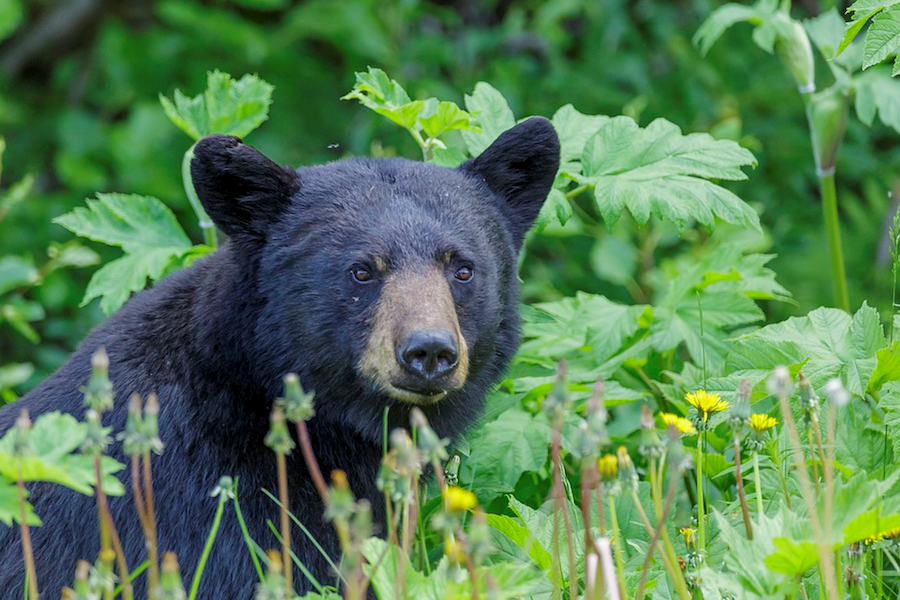An orphaned bear cub that disappeared after being left on its own in last September haunted Michelle Joyce for weeks.
The Tri-City woman thought the tiny bruin should have been taken to for rehabilitation, after its mother was killed for being sick.
However, she said the bear was left in the Coquitlam park to fend for itself.
"This cub was up in a tree for days and days and he was just crying," said Joyce, who said she reported her concerns to the BC Conservation Officer Service.
Officers eventually set up a trap, but the bear cub never showed up.
Joyce speculates that the tiny bruin died of starvation, telling the Tri-City News the whole situation was "very concerning."
"I wanted to know more about this, why is this happening with all these orphaned cubs. How many are being killed and how many are being left out there?"
FOI reveals 77 bear cubs killed
Joyce's experience has raised concerns among animal rights advocates about how BC Conservation Officers handle wildlife complaints, especially when they decide to euthanize bears and bear cubs.
Joyce has joined forces with the animal advocacy group T for a review of the BC Conservation Officer Services' mandate and oversight after a
The list — obtained from 500 pages of documents — show most of the cubs were killed outside of the Lower Mainland.
However, in two cases young bears were killed in the Tri-Cities: one in Coquitlam and one in Port Coquitlam.
Now and the BC Minister of Environment and Climate Change Strategy.
“Our review of the reports provided, in conjunction with court decisions related to officer discretion in killing wildlife, quickly showed systemic issues related to how juvenile bears are treated in the BCCOS,” stated Lesley Fox, executive director of The Fur-Bearers, in a press release.
“As noted by the service many times, conservation officers are not wildlife managers and their role is related to public safety. But the records show killings of bear cub that were not related to public safety; we also read other incidents in which cubs were killed for their ‘poor health’ were not visually evaluated by qualified individuals,” Fox further stated.
It cites three cases in B.C. where bear cubs were not a public safety threat and were euthanized.
In two, the bear cubs were skinny and underfed with "no sign of sow" in one case and approaching an officer's truck in another.
In the third case, according to The Fur-Bearers, it was unknown whether one of the cubs killed in a bear family was habituated and a potential threat.
Fox told the Tri-City News that "change is very much needed" given that conservation officers are similar to police officers in that they carry lethal weapons and are empowered to enforce the Wildlife Act.
But unlike police agencies, there is no oversight about their decisions around killing bears.
"The BCCOS is a police agency. People need to understand that they are not wildlife managers, The word conservation is in their name. It sets them up for failure. It creates a misunderstanding with the public what their roles and responsibilities are," Fox said.
She said The Fur-Bearers seeks a clarification of the BCCOS mandate, possibly moving the service to the responsibility of B.C.'s solicitor general.
"We're calling for systemic change in that the BCCOS are acting outside their scope of authority any time they kill an animal that is not public safety concern, nor are they causing property damage.
"When there's no offence or no emergency there is not a role for BCCOS to get involved," she said.
Why do conservation officers euthanize bears?
BCCOS is reviewing the complaint, according to a statement, but says when dealing with bear cubs, officers seek input from wildlife biologists, subject matter experts and chief provincial wildlife veterinarians in specific incidents.
“Putting down any bear or cub is an unfortunate outcome that we work so hard to prevent,” the service said in response to questions from the Tri-City News.
“Every wildlife situation is unique and is assessed individually, taking into account ever-changing circumstances, such as the risk to public safety and the animal’s ability to survive in the wild.”
The statement notes that bears and cubs are killed if they are “habituated to humans or conditioned to non-natural food sources are not candidates for relocation or rehabilitation.”
However, it states that in some cases, animals are also put down for “humane reasons.”
As to the Minnekhada incident, a spokesperson for the Ministry of Environment said it will “take time” to get information.
The Tri-City News will update the story when the information becomes available.
Port Coquitlam bear killed after getting into garbage
Meanwhile, deaths of the two Tri-Cities bears point to the importance of securing all food waste to avoid luring bears into neighbourhoods.
In the Coquiltam case, a juvenile bear was killed last June. According to records it was emaciated, had an injured paw and showed no fear of humans as it scoured garages for food.
In the Port Coquitlam case in November, a juvenile bear was living under a sundeck until chased into the forest by conservation officers. It returned and was spotted by officers eating trash from a neighbour's garbage can. It was immobilized in a tree and later euthanized, according to the record.
Joyce, who obtained the FOI records that are the basis for The Fur-Bearers' complaint, hopes fewer bears are killed this year.
"It’s sad — I hope it’s a better year for bears in the Tri-Cities."
